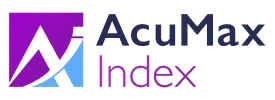How Well Do Your Employees Fit in at Your Company?
 You’ve likely heard the line “a square peg in a round hole.” The phrase refers to something that doesn’t fit or may be unsuitable for a specified purpose. If you apply that analogy to a business, you’ll probably agree that some workers just don’t seem to be a “cultural fit,” and the employees most appropriate for your company are those who do. When it comes to employees, it could be said that there are different definitions of “cultural fit” within an organization. The first, and most obvious, is how well an employee’s skills and background match the qualifications for a specific position. For example, say you’re looking for an experienced certified public accountant. You likely would expect that the person applying for the job with your company would have an accounting degree from a reputable school of accountancy, passed the CPA exam, and ideally has at least several years of practical experience behind them. Another type of organizational fit involves a company’s culture. After all, isn’t it possible that your top job candidate has the credentials you are seeking, but just wouldn’t be compatible with your workplace? Perhaps the person dresses too flamboyantly, or has very strong personality characteristics that others might find offensive. And if this employee must represent your company in dealing with customers, especially in person, that could present a problem.
You’ve likely heard the line “a square peg in a round hole.” The phrase refers to something that doesn’t fit or may be unsuitable for a specified purpose. If you apply that analogy to a business, you’ll probably agree that some workers just don’t seem to be a “cultural fit,” and the employees most appropriate for your company are those who do. When it comes to employees, it could be said that there are different definitions of “cultural fit” within an organization. The first, and most obvious, is how well an employee’s skills and background match the qualifications for a specific position. For example, say you’re looking for an experienced certified public accountant. You likely would expect that the person applying for the job with your company would have an accounting degree from a reputable school of accountancy, passed the CPA exam, and ideally has at least several years of practical experience behind them. Another type of organizational fit involves a company’s culture. After all, isn’t it possible that your top job candidate has the credentials you are seeking, but just wouldn’t be compatible with your workplace? Perhaps the person dresses too flamboyantly, or has very strong personality characteristics that others might find offensive. And if this employee must represent your company in dealing with customers, especially in person, that could present a problem.
Do You Like Sports?
Originally, the concept of company culture centered on hiring employees who were tuned in to the company’s goals and values. Presumably, they would be better performers because they too would feel more comfortable in their work environment. In short, they would be a better “fit” for the company. Cultural fit still ranks highly among employers. Lauren Rivera, author of a recent New York Times article on the topic (“Guess Who Doesn’t Fit in at Work,” May 30, 2015), found that more than 80 percent of employers globally said cultural fit was a top hiring priority. However, Rivera, who spent months researching the hiring practices of the top investment banks, management consultancies and law firms in the United States, also discovered that the idea of “cultural fit” seems to have become skewed. Fit is now defined not as much by how well a candidate matches an organization’s values, or even their perceived ability to get along with clients. It is more about whether the person doing the hiring can get along with the candidate and even feels the candidate could become a friend.
It’s Not Personal, It’s Business
So no longer is the emphasis on what’s best for customers or clients, but what’s best for the personal preferences of the company’s managers. The danger is that managers will hire too many employees who have very similar character traits and interests, which would limit workplace diversity. And when it comes to creativity and making complex decisions, a team that’s more diverse will outperform a more homogenous one. If your team has too many similar players, they may ignore important information when making decisions. How to remedy the situation? Rivera suggests that companies make certain their definition of “cultural fit” is aligned with their business goals and not personal preferences. Organizations that view cultural fit as an advantage also tend to lean toward using hiring tools such as surveys and interviews that test behaviors associated with high performance and retention. It helps to have formal procedures in place for assessing and measuring a prospective employee’s fit with the organization. This also includes providing those who are doing the hiring with guidelines on how to weight various candidate characteristics. How well do your employees fit in at your company? How well do your employees “fit” in their jobs. AcuMax excels at help companies predict the success of a potential new employee based on how their natural wiring fits with the wiring of the job – even before the interview. Companies who use the AcuMax Index in their hiring process have improved their hiring success rate from 10% to more than 80%. Call us to learn how the AcuMax Index can help your organization find the right talent 844-228-6291.




